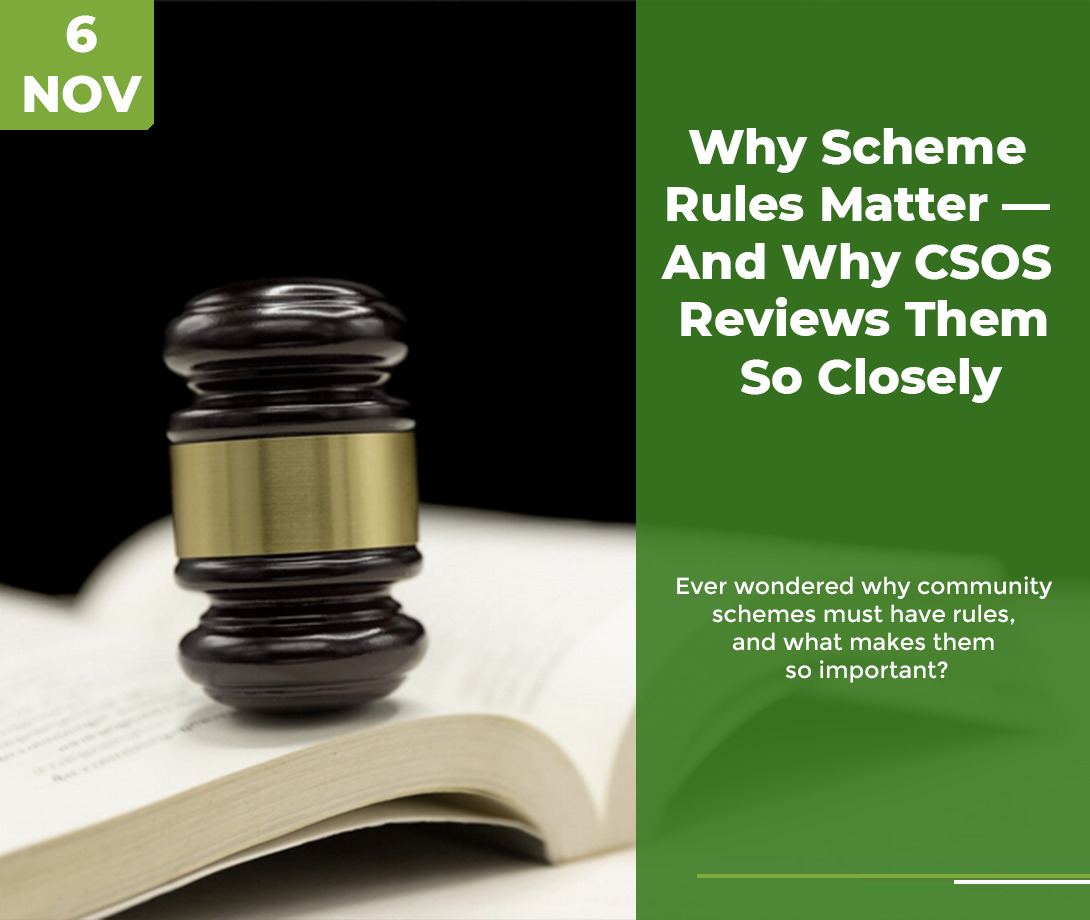Why Scheme Rules Matter — And Why CSOS Reviews Them So Closely
Originally published in Issue 28 of the CSOS Shared Living Magazine.
Ever wondered why community schemes must have rules, and what makes them so important? According to Section 10 of the Sectional Titles Schemes Management Act (STSMA), every scheme must create a set of rules from the very beginning — not just for order’s sake, but to ensure fair administration, responsible management, and the protection of owners’ rights.
But these rules aren’t just internal guidelines; they are legal documents that bind every owner and occupant. Before they can take effect, the rules — and any amendments — must be submitted to the Community Schemes Ombud Service (CSOS) for approval by the Chief Ombud. This rigorous process ensures that no rule undermines the principles of fairness and compliance set out in the Act.
Recently, CSOS has observed a worrying trend in some rule amendments. Certain body corporates have tried to include provisions allowing them to charge members legal costs on an “attorney and own client” scale — effectively placing an unfair financial burden on members.
However, Prescribed Management Rule (PMR) 25(4) and (5) clearly state that legal costs must be reasonable and that only a court of law can determine the appropriate scale of such costs. Both the Katisi and Zikalala court judgments have reaffirmed this principle, underscoring that schemes cannot self-determine or impose excessive legal fees.
In response, CSOS has tightened its rule approval process, examining all amendments “with a fine-tooth comb” to ensure that undesirable or unlawful provisions are filtered out. The message is clear: rules must align with PMR 25(4)(5) and uphold fairness, transparency, and harmony in shared living communities.
Through this oversight, CSOS continues to promote balanced governance, ensuring that community living remains equitable and that no rule becomes a tool of exploitation.


